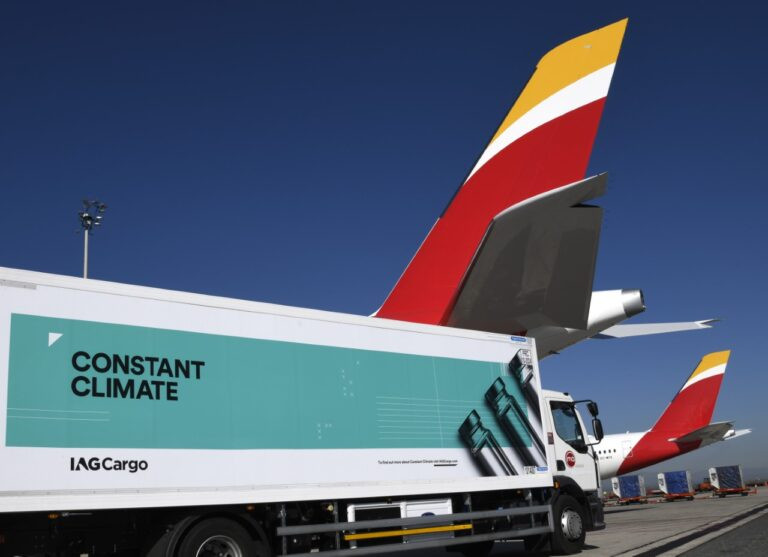Kuehne+Nagel to reduce emissions by purchasing eight million litres of sustainable aviation fuel. The delivery will be over 2022 and will remove approximately 18,300 tonnes of CO2, which is the equivalent of 150 British Airways flights between London and New York.
The SAF, manufactured from sustainable waste feedstocks, will be sourced from Phillips 66 Limited’s Humber Refinery in Lincolnshire, England – the first to produce SAF at scale in the UK.
IAG was the first European airline group to commit to 10% of its fuel to be SAF by 2030. SAF can reduce carbon emissions by over 90% and is widely recognised as the most effective measure to significantly reduce the environmental footprint of air cargo.
John Cheetham, chief commercial officer at IAG Cargo commented: “Sustainable aviation fuels are supporting the industry to significantly lower carbon emissions and we know reducing carbon footprint is important for our customers, colleagues and partners.
“I’m delighted that we are once again collaborating with Kuehne+Nagel. This is an important next step in our commitment to reducing our impact on the environment. Partnerships like these are key as we continue to look at ways to support sustainable air cargo.”
Yngve Ruud, member of the management board of Kuehne+Nagel, responsible for Air Logistics, said: “We continue to prioritise measures that facilitate a transition to a low-carbon business model, ours and our customers‘. By securing another significant amount of Sustainable Aviation Fuel together with IAG Cargo, we are reaffirming our commitment to the long-term transformation of the industry and readiness to drive it.”
IAG Cargo first partnered with Kuehne+Nagel last year to power a charter chain of 16 flights from Stuttgart to Atlanta. Answering growing customer demand for environmentally friendly logistics, Kuehne+Nagel has been proactively expanding its sustainable services portfolio with innovative and easily customised shipping options. Kuehne+Nagel has so far sourced 21 million litres of SAF allowing its customers to benefit from immediately available alternative fuel solutions to reduce CO2 emissions of their airfreight globally.



